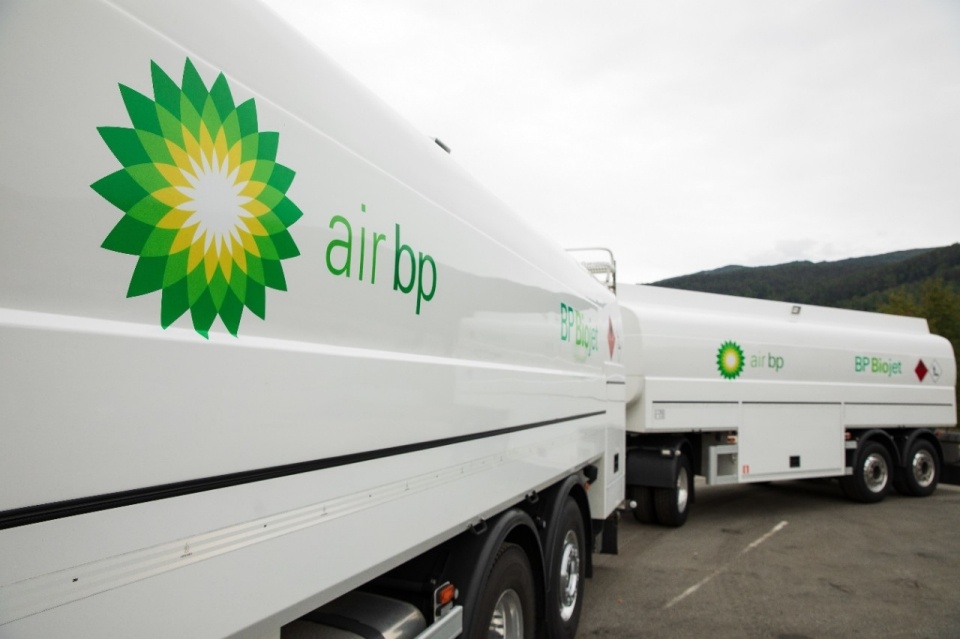Air bp and Neste are looking increase production of sustainable aviation fuels (SAF) five-fold by 2021, compared to 2019 levels, just as European governments start bringing in requirements for carriers to use more environmentally friendly fuels.
At the start of August, the European Union announced a consultation over the use of SAF quotas for airlines. In the August 5 move, the European Commission said that other options being considered included carbon trading, and a “green airline” accreditation scheme, as it looks to increase EU-wide SAF use from its current 0.05% market share in the trading bloc.
While back in January Norway set out a 0.5% minimum requirement for SAF use by airlines, and it is set to rise to 30% by 2030. Other European countries such as the Netherlands, Germany, France, Belgium, and Denmark have voiced discussions over adding environmental taxes to aviation,
Air bp will make the Neste-produced SAF available at selected airports in Europe, with deliveries to Nordic airports including Stockholm and Oslo expected to begin in the coming weeks.
Neste’s SAF is produced from 100% renewable waste and residue raw materials. In its neat form and over the lifecycle, it can reduce up to 80% of greenhouse gas emissions compared to conventional jet fuel. SAF undergoes the same quality tests as regular fossil jet fuel and can be blended at up to 50% to fuel aircraft.
According to the firm, currently, SAF offers the only viable drop-in alternative to fossil liquid fuels for powering commercial aircraft.
“Bp’s ambition is to be a net zero company by 2050 or sooner and to help the world get to net zero. Air bp aims to support our customers and the wider aviation industry on their path to meet their low carbon goals. We believe sustainable aviation fuel will play an important role as the industry recovers from the impact of the COVID-19 pandemic.
Through our successful ongoing collaboration with Neste, we are pleased to be able to offer our customers a substantially increased volume of SAF as they work towards reducing their emissions”, says Martin Thomsen, Air bp’s chief executive officer.
Neste’s sustainable aviation fuel annual capacity is currently 100,000 tons. With their Singapore refinery expansion on the way, and with possible additional investment into their Rotterdam refinery, Neste will have the capacity to produce some 1.5 million tons of SAF annually by 2023.
In 2018, Air bp and Neste announced plans to explore and develop supply chain solutions for delivering SAF to airports and airlines. As a next step in their collaboration, in April 2019 they jointly developed a viable supply chain solution for sustainable aviation fuel to the Swedish market.
Increasing SAF production isn't the only way that airlines are looking to reduce their environmental impact, both SAS and Lufthansa now offer passengers the chance to pay the higher cost of using SAF on flights.
In a sign of how seriously the industry is taking the issue The Business Aviation Coalition for Sustainable Aviation Fuel (SAF Coalition) today also released a new informational guide detailing how industry leaders can incorporate sustainable aviation fuel (SAF) into their operations and accelerate the adoption of low-carbon fuels, while reducing greenhouse gas (GHG) emissions.
The new guide, titled, Fueling the Future, serves as an educational and informational resource about the practicalities of SAF development, industry adoption, and pending expansion of supply and use, primarily from the perspectives of the business aviation community. SAF blending components are made from bio-based or other circular-economy feedstock sources.
“The single-largest potential reduction in aviation’s greenhouse gas emissions — and the key to reaching our goals — will come about through the broad adoption of sustainable aviation fuel in place of the current conventional jet fuel,” the coalition concludes in the guide.
The SAF Coalition – which includes the Commercial Aviation Alternative Fuels Initiative (CAAFI), the European Business Aviation Association (EBAA), the General Aviation Manufacturers Association (GAMA), the International Business Aviation Council (IBAC), the National Air Transportation Association (NATA) and the National Business Aviation Association (NBAA) – developed the guide.

